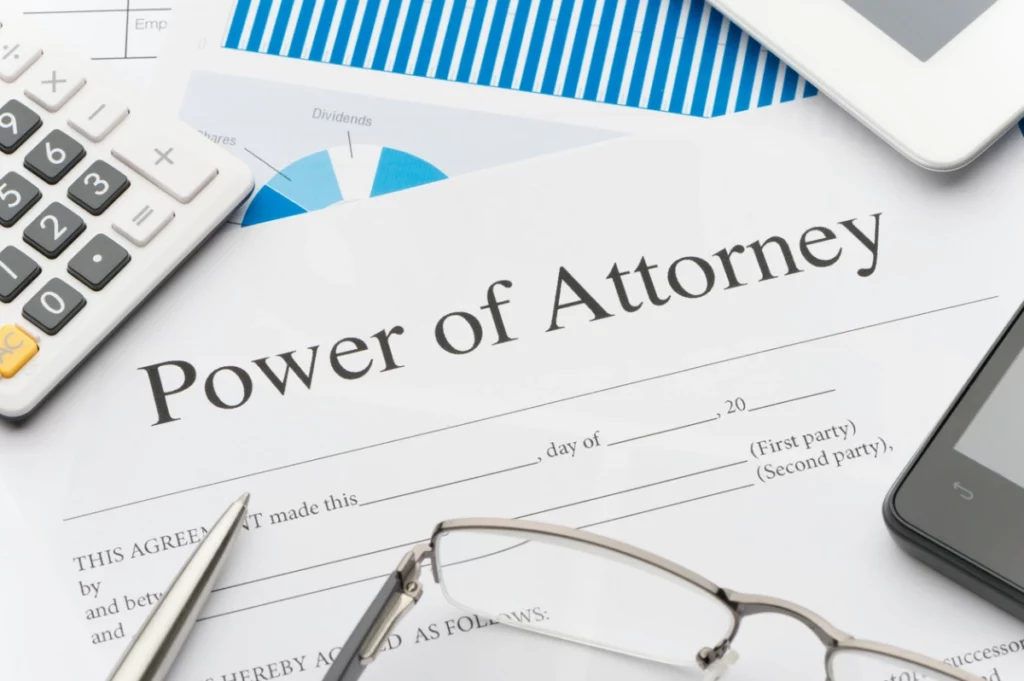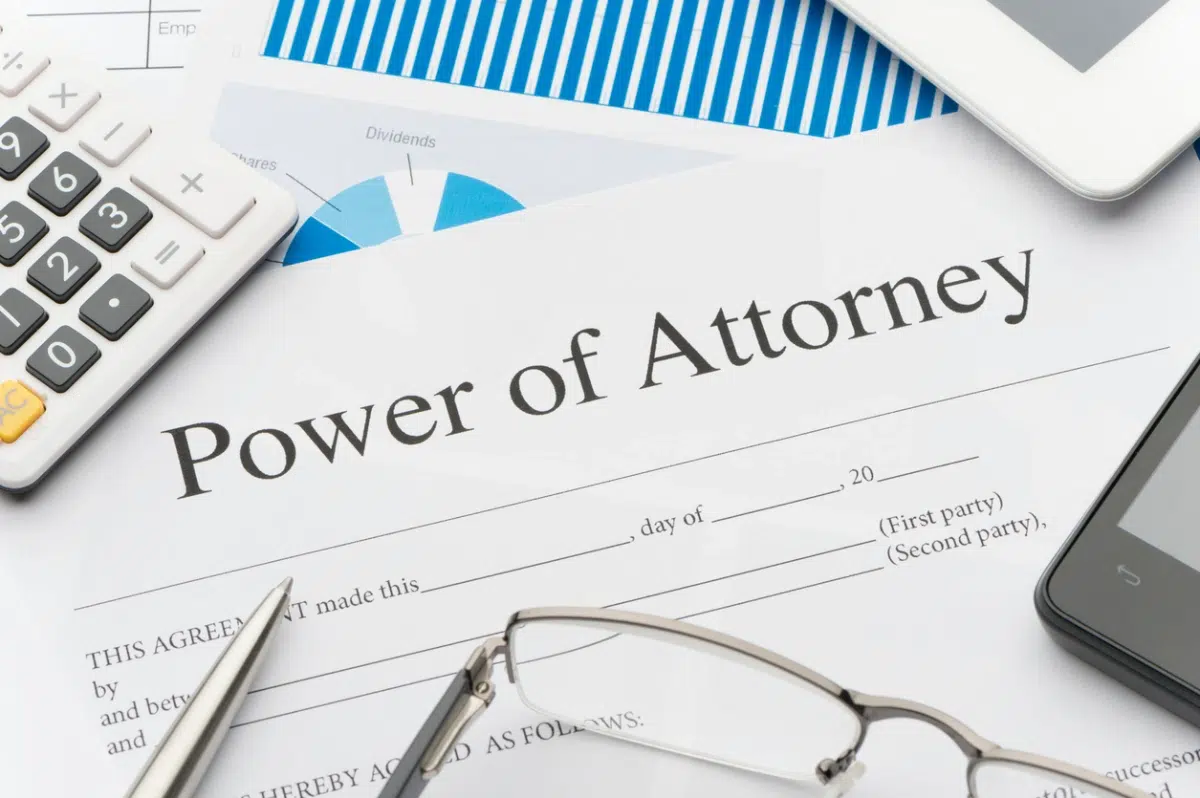
Estate planning in Florida is about far more than creating a will. An effective estate plan also helps you and your loved ones prepare for the unexpected by including directives for what to do if you become temporarily or permanently incapacitated.
Many people create an advance health care directive — sometimes called a “living will” — to give themselves and their families peace of mind. This can be a good place to start, but it provides no clear plan of action for handling finances, day-to-day decision-making, and other factors.
If you want to make sure you’re prepared for whatever comes your way, it’s wise to look into a durable power of attorney (POA). You can start by exploring these key elements of Florida’s power of attorney 101.
Purpose of Power of Attorney
No one likes to think of becoming so physically or mentally incapacitated that they cannot handle their own day-to-day affairs. Imagining this prospect may be uncomfortable, but it’s infinitely better to take the time to do so now instead of waiting until it’s too late to create a power of attorney.
A power of attorney document allows you to select a trusted person to act on your behalf if you become unable to do so yourself. Florida’s power of attorney laws enable you to create these documents for a number of different situations, such as:
- If you become unable to make medical treatment decisions for yourself
- If your mental capacity diminishes to the point that you cannot manage your finances or the tasks of daily living
- If you are unavailable and need someone to handle a specific business transaction on your behalf
Before you start putting together a power of attorney document, you should be aware of some common terms surrounding power of attorney.
Perhaps the most important terms include:
- The Principal: You
- The Agent: The person you’ve chosen to act on your behalf
- The Power of Attorney (POA): The document authorizing the agent to make decisions on behalf of the principal
It’s essential to note that POA documents rarely hand over full decision-making authority to an agent — even if your agent is someone you trust. To clarify the agent’s duties and protect the well-being of the principal, a durable power of attorney document should clearly define and limit the scope in which the agent is authorized to act.
This agent is also sometimes called the “attorney in fact” or “personal representative.”
Importance of Having a Power of Attorney in Florida
Any estate planning lawyer can tell you that having a valid power of attorney in place is often a good idea. While each person’s circumstances are different, a carefully drafted power of attorney document comes with many advantages.
Protecting You From Guardianship Proceedings
If you suddenly can’t make decisions for yourself and you have no established power of attorney, the court may need to appoint a guardian. This can be a stressful and contentious process.
Allowing You More Control
There’s always a possibility that you could become incapacitated because of circumstances out of your control. However, when you choose your attorney in fact and create a valid power of attorney document, you can at least give yourself the peace of mind of knowing someone you trust will be making decisions for you if you cannot.
Reducing Stress on Loved Ones
If you are seriously hurt in an accident, suffer a brain injury, or otherwise become incapacitated, your loved ones may understandably be under stress. However, if you have a power of attorney document and choose a reliable attorney, your loved ones will know you’re in good hands.
Types of Power of Attorney in Florida
Deciding to grant a trusted person the power to make critical decisions on your behalf is a major decision. Fortunately, Florida law around establishing power of attorney makes it relatively easy to ensure the person you select won’t overstep. They are only authorized to exercise the powers granted to them in the power of attorney document.
But what type of power of attorney document should you choose? These are some of the primary types of power of attorney documents and when you might choose to use them:
Durable Power of Attorney
The “durable” in “durable power of attorney” means that the agreement stays in effect even if you become incapacitated. This kind of agreement cannot be easily revoked; it can only be canceled if the principal dies or cancels it themselves.
If you create a durable power of attorney, you may decide the scope of authority you want to grant to your attorney-in-fact. You can do this by determining whether you want a general power of attorney or a limited power of attorney.
General Power of Attorney
As the name suggests, a general power of attorney authorizes your trusted person to handle all or most of your affairs if you become unable to do so. This kind of agreement can allow your representative to do the following:
- Conduct banking transactions on your behalf
- Pay your bills
- Buy or sell real property for you
- Manage your bank accounts
It can be helpful to have an agreement like this in place if life circumstances suddenly make it impossible for you to manage your finances and other aspects of your life. However, if your attorney-in-fact is not trustworthy, you could be left vulnerable to financial abuse. An estate planning attorney may be able to offer advice on how to select the right representative.
Limited or Special Power of Attorney
If you want to ensure your attorney-in-fact is not granted too much authority, you may choose a limited power of attorney, which is also sometimes referred to as a “special” power of attorney. For instance, you might specify that your agent may handle your financial affairs but not your legal ones.
In some cases, you can create a limited power of attorney that is also only effective for a short period of time. This type of agreement may be necessary if you need someone to represent you temporarily.
For instance, if you need to close on a property but will be out of the country on the closing date, you could create a limited power of attorney document authorizing your business partner to attend the closing and sign on your behalf.
What About Health Care Power of Attorney?
Technically speaking, you can use a power of attorney form to give your agent the right to make health care decisions on your behalf. However, most estate planning attorneys suggest using a more specific document called a Florida Designation of Health Care Surrogate.
If you have a properly drafted Florida Designation of Health Care Surrogate, your doctors will be able to share information with your surrogate without violating the Health Insurance Portability and Accountability Act (HIPAA). A Florida Designation of Health Care Surrogate also kicks in if a doctor declares you to be mentally incapacitated or otherwise unable to make decisions for yourself.
This was not always how these types of decisions were handled by Florida law. In addition to general, limited, and durable power of attorney designations, Florida used to have something called a “springing” power of attorney. This designation would “spring” into effect if you became incapacitated and could not manage your own affairs.
In theory, this sounds like the perfect arrangement. However, it caused legal nightmares in practice. Specifically, springing powers of attorney led to legal battles over whether the principal was incapacitated or not. These battles resulted in considerable delays and ultimately made it harder for the principal to get the medical care they needed.
In 2011, the Florida statutes officially outlawed the creation of new springing power of attorney documents. While the law did not invalidate existing springing powers of attorney, it specified that they would only become active after a physician certifies that the principal is incapacitated.
It was once more feasible to use a power of attorney document as an advance health care directive. Today, to protect yourself from potential abuses of power and to simplify the handling of your health care if you lose the physical or mental capacity to make decisions, you should generally use a separate document to establish who’s in charge if you can’t make key medical decisions.
Creating a Valid Power of Attorney Document
The importance of making sure your power of attorney is valid under Florida law cannot be overstated. If you don’t follow proper procedures, a court may later determine the agreement is invalid.
To ensure your power of attorney will be upheld in court, you must be of sound mind when you create it. If you are under extreme duress or suffering from the early effects of Alzheimer’s when you create the document, someone may be able to challenge it successfully in court.
For your power of attorney to be valid, you also must sign the document in front of two witnesses and a notary. It is critically important to make sure everyone — you, the two witnesses, and the notary — signs the document while all are present.
Choosing an Agent for Your Power of Attorney
If there is someone in your life you trust enough (and that person is 18 or older), you may wish to make them your agent. If you go this route, you should have a serious discussion to make sure they understand and will respect your wishes.
Not everyone has a person in their lives they trust to this extent. If you prefer, you may select a financial institution to serve as your agent. However, that financial institution must meet the following requirements:
- Has trust powers
- Has a place of business in the state where you live
- Is authorized to conduct trust business
Choosing your agent or attorney can be stressful. An estate planning attorney can help you determine which person or organization is the best fit for your situation.
Working With an Estate Planning Attorney
Working with an estate planning attorney is essential when you’re dealing with something as critical as a power of attorney. The right lawyer can offer guidance, and they can also make sure you follow all necessary procedures for creating the document — and revoking it, if needed.
Even skipping a seemingly minor step, like making sure you and the witnesses sign in the presence of one another, may render your power of attorney invalid. Your lawyer can help you avoid potential pitfalls like these and ensure your wishes will be respected if you become incapacitated.
Maintaining and Updating a Power of Attorney
Because a power of attorney stays in effect until you die or revoke it, you should periodically review it to make sure it’s still meeting your needs. If you already review your estate plan at regular intervals, make sure to review your power of attorney at this stage as well.
It’s important to note that if you need to update your power of attorney, you can’t make changes to the existing document. Instead, you must formally revoke it and create a new one.
Terminating and Revoking the Florida Power of Attorney
The process of creating a power of attorney is very formal, and so is the process of revoking it. To properly terminate an agreement, you must first prepare a document stating that you are revoking the power of attorney.
You don’t need to explain why, but you do need to include specific details, such as when the original document was created and who you named as your agent. The revocation should also be notarized.
Do You Need to Create a Power of Attorney?
The right power of attorney document can give you unmatched peace of mind. To make sure your power of attorney will hold up in court, you will want to consult with an estate planning attorney when creating it.
The William C. Roof Law Group team has helped countless people like you plan for the future and safeguard their assets. If you need to update your power of attorney or create one for the first time, get in touch with us today.
The contents of this article are not comprehensive, they provide only a general overview of the subject matter discussed. This article does not establish a client-attorney relationship with the reader, and no legal decisions should be made based on the article’s contents. Because every legal matter arises under unique facts specific to the client, no legal decision should be made without consulting a licensed attorney.


